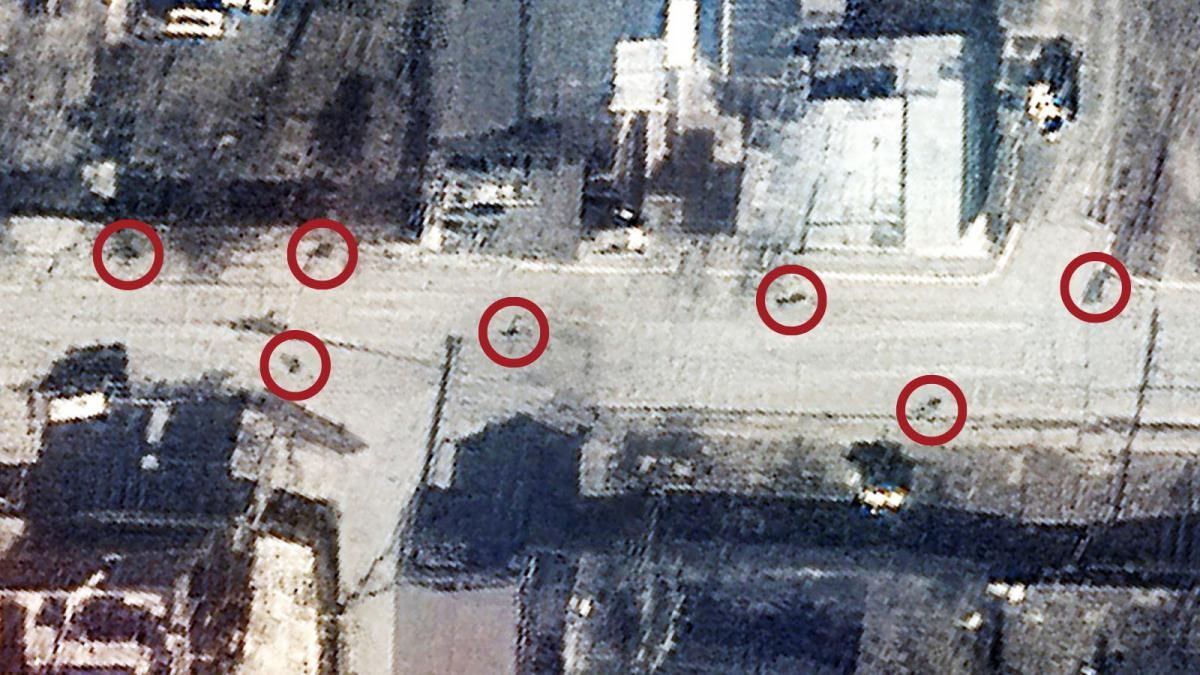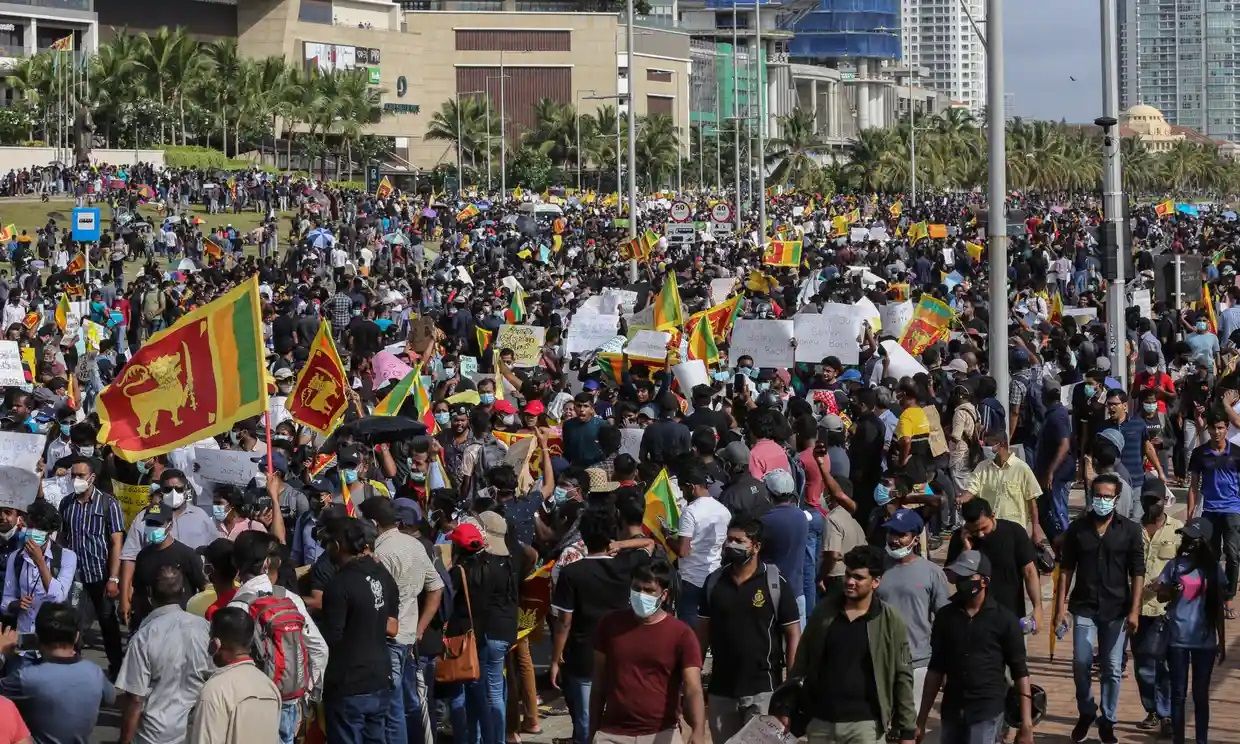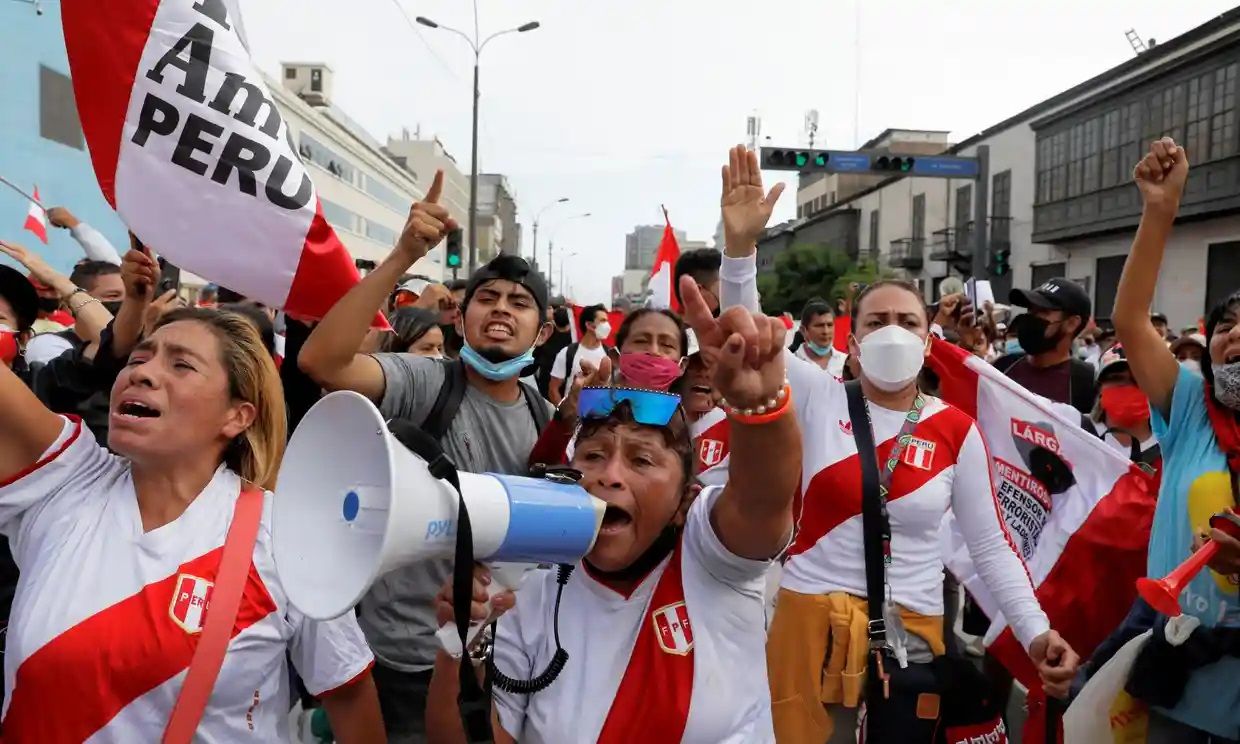
既无故土,也不分南北。
[247 Every Moment] Butcha's violent enemies in terror have not yet been burned and looted; Pakistani Prime Minister steps down amid controversy
Written by: New Bremen
Bucha in terror
On March 30, the Russian troops withdrew completely from the city of Butcha (Буча), which is 30 kilometers away from the Ukrainian capital. Subsequently, the Ukrainian government and military took over the site. When Ukrainian troops entered Butcha, the streets were littered with the bodies of civilians.
At least 410 civilians suspected of being killed by Russian forces have been found near Kyiv, Ukrainian prosecutors said. Eyewitnesses of alleged survivors said Russian soldiers, who had now left the area, opened fire on men fleeing the town and killed civilians at will. Agence France-Presse reported that at least 20 civilian bodies were seen on the streets, their hands tied behind their backs. The mayor of Butcha said 280 bodies were still in the makeshift pits.

In addition, Ukraine's parliamentary human rights commissioner said 25 women between the ages of 14 and 24 reported being raped during the Russian occupation of Buccha. The Kyiv Independent newspaper said that the personal property of residents in the area was looted by Russian soldiers. Satellite images showed bodies on the streets of Butcha before Russian troops evacuated the area. Ukraine's Attorney General said that Butcha was not the worst area and that the number of victims was higher in Borodyanka (Бородянка), west of Butcha.

The UN secretary general said he was "deeply shocked by the photos of civilians killed by Boucha. Independent investigation and effective accountability are essential." The UN Security Council held an emergency meeting on April 5 to discuss the issue. Ukrainian President Volodymyr Zelensky was invited to give a video statement, where he said, "I speak to you on behalf of the people who remember the dead every day and the civilians who were shot and killed after being tortured. Some of them are in the streets. They were shot. Others were thrown into wells, so they died in agony. They were killed by grenades in their apartments, their houses. Civilians sat in cars in the middle of the road and were run over by tanks just for fun. They Limbs were cut off, throats were slit, crushed to pieces, and women were raped in front of their children." According to Zelensky, at least 300 civilians were killed during the Russian occupation.
Zhang Jun, China's permanent representative to the United Nations, said, "According to international humanitarian law, civilians should be protected from any form of violence during armed conflict, and attacks against civilians are unacceptable and should not happen. Reports and images of civilian deaths in Butcha town. It is very disturbing and the circumstances and specific reasons for the incident must be ascertained.”
"Reports from this region and elsewhere raise serious and disturbing questions about possible war crimes, serious violations of international humanitarian law and serious violations of international humanitarian law," the UN High Commissioner for Human Rights said in a statement released on Monday. acts of international human rights law.” The UN Human Rights Monitoring Mission in Ukraine is trying to visit these places without delay.
On April 7, the UN General Assembly voted 93 in favour, 24 against, and 58 abstentions, passing a resolution jointly proposed by 58 countries suspending Russia's membership in the UN Human Rights Council. After the resolution was passed, Russia said it had withdrawn from the Human Rights Council. The day of the vote was the International Day of Reflection on the 1994 Genocide against the Tutsi in Rwanda, established by the UN General Assembly.
The EU imposed a new round of sanctions on Russia on April 8. Its measures include: banning the import of coal, timber, vodka and other commodities from Russia; restricting the export of EU member states to Russia, including aviation fuel, software and other products, prohibiting Russian companies from participating EU public procurement, expanding the scope of the ban on the use of cryptocurrencies, etc.
On April 7, Russia also attacked a train station in eastern Ukraine with a cluster bomb. The train station is an important transit point for Ukrainian refugees evacuating to other countries. The attack has killed at least 52 people and injured 109. An unexploded bomb had the words "for the children" written in spray paint. The UN chief said the attack - and others targeting civilians and civilian infrastructure - "grossly violated" international law. This is not acceptable. The Secretary-General reiterates his call to all parties concerned to put an immediate end to this brutal war.
According to the Geneva Convention relative to the Protection of Civilian Persons in Time of War, violence against the life and person of persons not actually taking part in hostilities shall be prohibited. Serious breaches of the Geneva Conventions are war crimes. The 2008 UN General Assembly Resolution 1820 reaffirmed that rape in war should be considered a war crime. At the same time, according to the Elements of Crimes for the International Criminal Court, an attack against civilians or civilian objects does not cause death or serious damage from unexpected causes, the attack itself is sufficient to constitute a war crime.
Russia claims all allegations are false.
Pakistan PM steps down amid controversy
On April 3, the deputy speaker of the Pakistani parliament, Qasim Suri (قاسم خان سوری), a political ally of the prime minister, rejected a no-confidence motion in Pakistani prime minister Imran Khan (عمران خان) on the grounds that the motion of no-confidence was unconstitutional The motion is put to a vote. Then Pakistani President Arif Alvi (عارف الرحمان علوی) dissolved Congress at the request of Imran Khan.
The decision was then taken to the Supreme Court of Pakistan by the opposition. After four consecutive days of hearings, Pakistan's Supreme Court ruled that rejecting both the no-confidence motion and the decision to dissolve parliament were unconstitutional. The court then ordered a new vote of no confidence on April 9.
Imran Khan and his allies tried to stop it. On April 9, Imran Khan met with the Pakistani army. The military has reportedly asked Imran Khan to choose between his resignation and a vote of no confidence. Pakistan's Supreme Court Chief Justice Omar Atta Bandyar (عمر عطا بندیال) warned that any breach of the court's order is in contempt of court, and the Islamabad High Court is ready to hear contempt of court cases late at night.
On the evening of April 9, the Speaker of the Pakistani Parliament, Assad Kaiser (اسد قیصر) resigned as Speaker and asked former Speaker Ayaz Sadiq (سردارايا زصادق) to preside over the meeting. The vote was subsequently carried out smoothly. A vote of no confidence passed with 174 votes in favor. Opposition leader Sheikh Baz Sharif (شہباز شریف) will be sworn in as the next prime minister in the coming days. He said the opposition would prioritize electoral reforms and hold general elections at an "appropriate" time.
Imran Khan, who still maintains a high profile among his supporters, is expected to run in the next election.
Anti-austerity protests erupt in many countries
Tensions persist in Sri Lanka. The government's cabinet resigned en masse on April 4, and President Gotabaya Rajapaksa (ගෝඨාභය රාජපක්ෂ) subsequently appointed a new finance minister. But he resigned on April 5. The country's parliament held an urgent debate on the tension.
On April 5, demonstrators surrounded the Sri Lankan parliament building demanding a solution to the current economic crisis. On April 9, thousands of demonstrators took to the streets again to protest the current economic situation and demand that Rajapak step down. Protesters say Sri Lanka's devastating economic crisis has been caused by Rajapak's undoing of austerity measures, lowering taxes, printing a lot of money and refusing to restructure its foreign debt since he came to power.
In a country so heavily divided by race, protesters of different races are standing together. Buddhist clerics in orange robes demanded political accountability, while on the road hundreds of IT workers could be heard chanting "Error 404: Democracy not found". As Muslim families distribute samosa during Ramadan, rainbow flags representing LGBT are fluttered around.

Sri Lanka's main opposition party is preparing a motion of no confidence in Rajapak's party in parliament. With the president in a weak position, the opposition's goal is to either step down or let parliament form a new government outside his control.
On April 4, Peruvian President José Pedro Castillo Terrones announced a curfew in the Peruvian capital, Lima, starting from April 5. Peru's National Ombudsman's Office (Defensoría del Pueblo del Perú) said that the measures taken by the executive are unconstitutional and in no way commensurate with the social protests in Lima and Callao: "The state of emergency is not a mechanism for managing social conflicts. The government itself should promote the dialogue process, while its commitment to meet with the conflicting unions remains pending. Based on these considerations, the Office of the Ombudsman emphasizes that the executive branch must lift the measure immediately.” The curfew was subsequently lifted.

Farmers and truck drivers in the country are protesting against soaring fuel and fertilizer prices, many of whom were former supporters of Castillo. The protests left at least four people dead.
Shooting in California capital
In the early morning of March 3, a shooting occurred in the center of Sacramento, the capital of California, killing 6 people and injuring 10 others. The suspect was arrested on April 4. Police are investigating the incident.
After the shooting, Sacramento Mayor Darrell Steinberg spoke about the increase in violence in the city, saying "we can never accept that it's normal, and we'll never accept it." President Joe Biden has also called for action on gun crime. "Today, America mourns yet another community devastated by gun violence," he said. "But we must do more than mourn; we must act".
Mexico holds presidential recall vote
When Mexican President Andrés Manuel López Obrador took office in 2018, he promised that he would hold a recall vote halfway through his term to allow the people to decide whether he should step down. He said the referendum was a way to hold the executive branch accountable to the people and prevent government corruption.
Opponents claim his handling of the coronavirus pandemic, inflation, energy reform and the war on drugs has been controversial. In February, his approval ratings fell for weeks in a row. At the time his son was found renting a mansion in Houston owned by a top executive of an oil company that did business with the Mexican government. However, Obrador's approval rating is still as high as 60%.
Enthusiasm for the referendum has been low among Mexicans, with several other referendums put to the public in the past two years, including one on possible immunity of a former president, with a mere 7 percent turnout. The premise that the recall vote is valid is that the referendum voter turnout must be higher than 40%.
other news
On April 3, Serbia will hold national elections. The current president, Alexander Vucic (Александар Вучић), won the election with 58.5% of the vote. However, his Serbian Progressive Party (Српска напредна странка) won only 42.9% of the vote in parliamentary elections, failing to gain a majority. A coalition of the green left has entered parliament for the first time.
On April 4, Costa Rican economist Rodrigo Chaves won the country's presidential election. Turnout was the lowest in decades, though, as voters expressed dissatisfaction with Costa Rica's struggling economy.
The U.S. Senate has passed a $10 billion budget to fund domestic covid-19 research, treatment, vaccinations and testing. The agreement does not include any funding to fight the pandemic abroad.
Turkey's annual inflation rate rose above 61% in March. This figure is the highest in 20 years. The fuel crisis means transport costs are 99% higher than last year, while food prices are 70% higher.
On April 6, the Fed announced that it would reduce its holdings. The Fed wants to fight high inflation with quantitative tightening and interest rate hikes.
Armenian Prime Minister Nikol Pashinyan (Նիկոլ Փաշինյան) and Azerbaijani President İlham Heydər oğlu Əliyev on April 6, as Armenia and Azerbaijan face renewed military conflict over disputed enclave Meeting in Brussels.
Yemeni President Abdul Raab al-Mansour Hadi (عبد ربه منصور هادي) fired Yemen's vice president and delegated much of his power to the Saudi-backed Security Council. Saudi Arabia wants a negotiated end to Yemen's civil war.
Global food prices rose at their fastest pace in 14 years due to multiple reasons including the war in Ukraine. The UN food price index rose 13% in the month, while the grain index rose 17%.
The U.S. Senate voted 53 in favor of appointing Ketanji Brown Jackson to the Supreme Court to replace retiring Stephen Gerald Breyer. Brown Jackson will be the first female black justice in the history of the United States.
Israeli Prime Minister Bennett (נַפְתָּלִי בֶּנֶט), a member of parliament from the Right Party (יָמִינָה), suddenly quit the party and joined the opposition Likud (הַלִּיכּוּד). The number of MPs in the ruling coalition fell to 60. As long as one more MP leaves the ruling coalition, the government will collapse.
(Editor in charge: New Bremen)
Like my work?
Don't forget to support or like, so I know you are with me..
Comment…